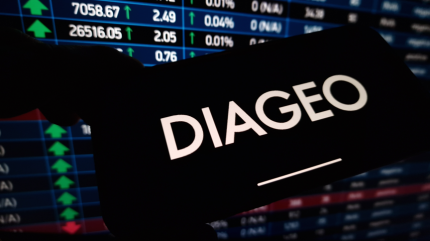
Diageo has agreed to pay a “settlement” of $750,000 in Africa following a probe into anti-competitive business practices.
The Common Market for Eastern and Southern Africa (COMESA) Competition Commission launched an investigation into Diageo, alongside Heineken, Castel and Anheuser-Busch InBev, in 2021, regarding the “market allocation arrangements” and “territorial restrictions” the companies were alleged to have had.

Discover B2B Marketing That Performs
Combine business intelligence and editorial excellence to reach engaged professionals across 36 leading media platforms.
In its notice at the time, the competition authority said it was concerned the arrangements and territorial restrictions “reinforce national borders” and impact overall trade and competition within the COMESA common market.
COMESA is made up of 21 member states, which includes Uganda, Zimbabwe, Zambia, Kenya, Ethiopia and Libya.
In its decision on Diageo, published last month, the COMESA Competition Commission said its probe concerned the UK drinks giant’s “alleged practice of market allocation” that had been carried out via distribution agreements with its third party distributors.
The investigation found Diageo’s production and distribution agreements in Seychelles and Uganda had “restrictive clauses” which fixed product prices in the “common market”.

US Tariffs are shifting - will you react or anticipate?
Don’t let policy changes catch you off guard. Stay proactive with real-time data and expert analysis.
By GlobalDataIt also highlighted the company’s Uganda distributors were “restricted from dealing in competing products which harms inter-brand competition” and added Diageo’s “dominant position” in the market further aggravated damage to competition.
Territorial restrictions were also found to be present for Diageo’s distributors in Uganda, Zambia, Eswatini and the Seychelles.
Agreements with distributors in Uganda were found to have clauses that restricted operations outside of their designated territories, and in some cases “implied a restriction to passive sales leading to absolute territorial restrictions”, the competition watchdog said.
In Eswatini, the Seychelles and Zambia, companies were said to have been confined to selling or exporting products to customers that might re-sell the goods for export, which can “limit the possibility of trade among member states”.
Following the investigation, Diageo has proposed a number of commitments “on a non-admission liability basis”, to which the COMESA Competition Commission’s decision-making body, the Committee Responsible for Initial
Determinations, has agreed.
The commitments include paying a settlement of $750,000. The Johnnie Walker distiller has also agreed to send the commission “periodic compliance reports” and amend clauses in its agreements.
Responding to the decision, a Diageo spokesperson said: “We’re pleased that this matter has been resolved and will be implementing the terms of settlement in due course.”
In March, the COMESA Competition Commission said it had found that Heineken had also engaged in anti-competitive practices with some of its distributors, which included preventing them from buying products from other companies.
In a document detailing its decision at the time, the competition authority said the Dutch brewer had agreed to carry out an audit of its distribution agreements within the COMESA common market and pay $900,000 in fines.
Just Drinks has asked the COMESA Competition Commission when it plans to publish its findings from its probe into Castel and AB InBev.





